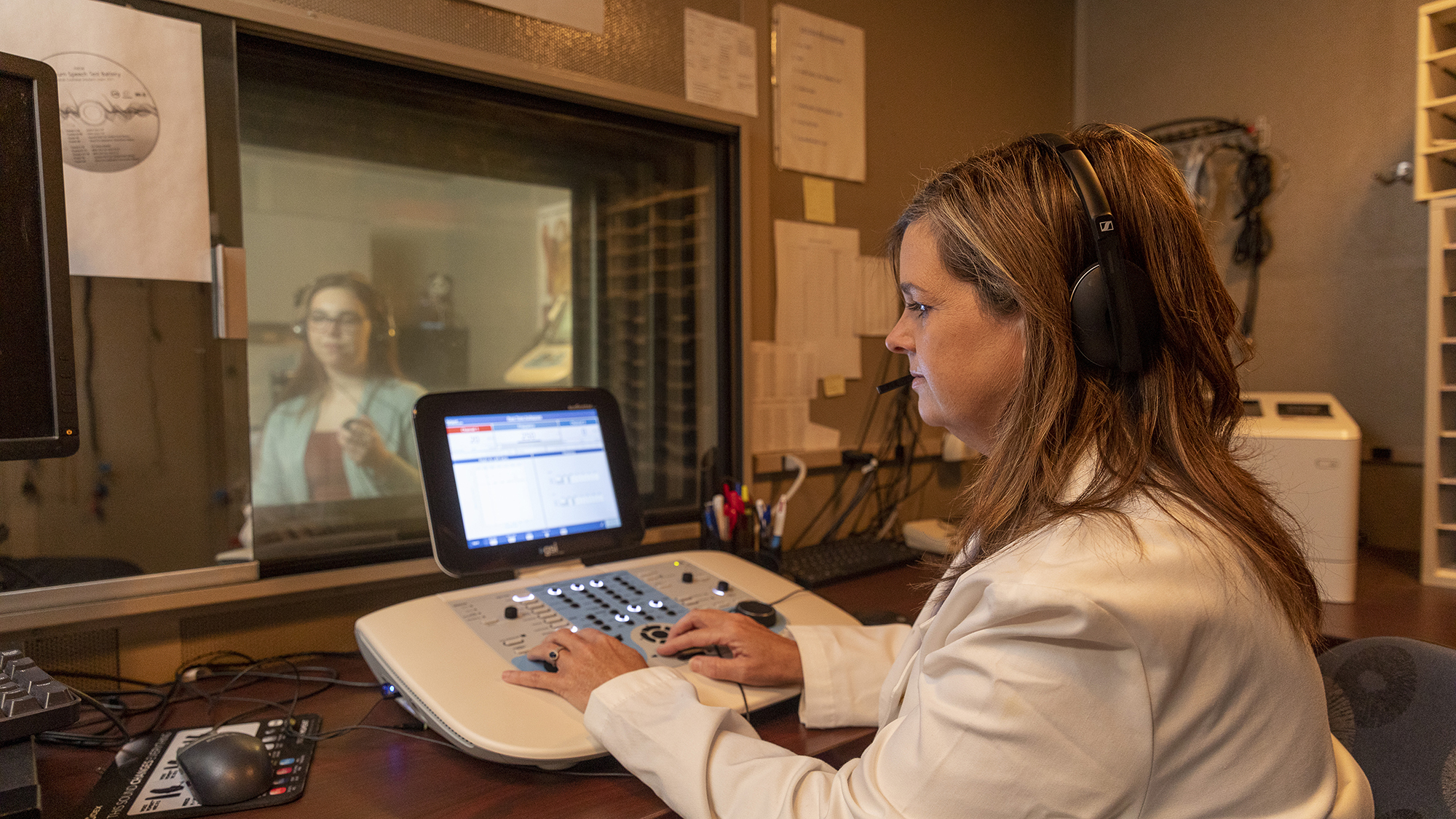Auditory Processing Disorder
OVERVIEW
UNCG’s Hearing Center provides comprehensive multidisciplinary evaluation and intervention services for children and adults with auditory processing disorder (APD).
WHAT IS AUDITORY PROCESSING DISORDER (APD)?
Auditory processing refers to our brain’s ability to make sense of what we hear and utilize this information to accomplish higher-order tasks such as listening, learning, and communicating. Auditory Processing Disorder (APD) is characterized by difficulty recognizing, discriminating, comprehending, and/or remembering auditory information. Individuals with APD typically have normal hearing and cognitive abilities.
SIGNS AND SYMPTOMS
Listening difficulties may include the following behaviors:
- Says “huh” or “what” frequently
- Often misunderstands what is said
- Difficulty following oral instructions
- Difficulty listening in the presence of noise or in group conversations
- Easily distracted or bothered by sounds
People with APD may have reading, spelling, and/or other academic problems. Difficulty with interpersonal communication and behavior problems at school, home, or work also may be exhibited.
ASSESSMENT OF APD
APD is associated with deficits in one or more of the following areas: decoding of speech sounds, integration of auditory information, auditory attention, auditory closure skills, and short-term auditory memory.
Testing for APD can be performed for individuals ages 6 years to adult and includes a comprehensive hearing assessment and evaluation of auditory processing skills. The battery of tests is based on presenting complaints and identifies auditory weaknesses that make listening difficult. Because APD can underlie some higher-level disorders (e.g., dyslexia and language impairment), this assessment can assist with differential diagnosis and guide accommodations.
INTERVENTION FOR APD
APD can be managed effectively using environmental modifications, targeted training, and compensatory strategies. Following an assessment, clients receive a comprehensive report and take-home packet of information including strategies that can be used at school, home, or work to improve listening skills and facilitate communication.
Audiologists and speech-language pathologists at UNCG Speech and Hearing Center also provide auditory training and therapy services both on site and at home with remote supervision. Intervention is tailored according to each client’s listening difficulties.
Contact us for information about treatment options and/or visit the following websites to learn more about available auditory training programs:
APPOINTMENTS
- Appointments are required for an APD assessment, consultation, and treatment services.
- All paperwork should be completed and returned to the Center for review before the appointment See Forms.
- In addition, copies of previous evaluations and all relevant documentation are requested so that the audiologist has an opportunity to review them in advance.
- Morning and afternoon appointments are available Monday through Thursday (9:00 am or 1:00 pm).
- Evaluations are planned for three hours, with short breaks provided as needed.
- For more information see our Appointments page.
Please do not alter the patient’s diet, medications, or routine for this appointment including ADHD medications. Also, try to get a good night’s rest and eat in advance or bring a snack.
CONTACT
Director, Speech and Hearing Center
Lisa McDonald
[email protected]
Assistant Director, Speech and Hearing Center
Lisa Fox-Thomas
[email protected]
Phone 336.334.5939
Email [email protected]
Location
524 Highland Ave, 300 Ferguson Building, Greensboro, NC 27412
